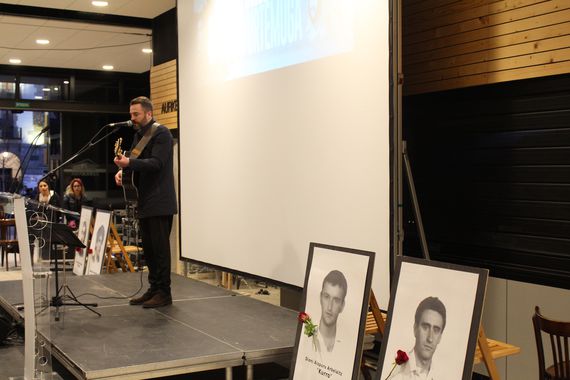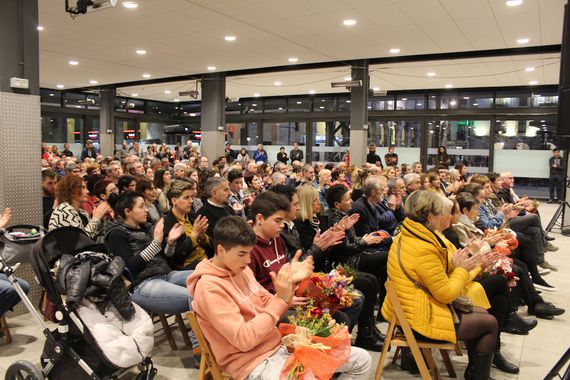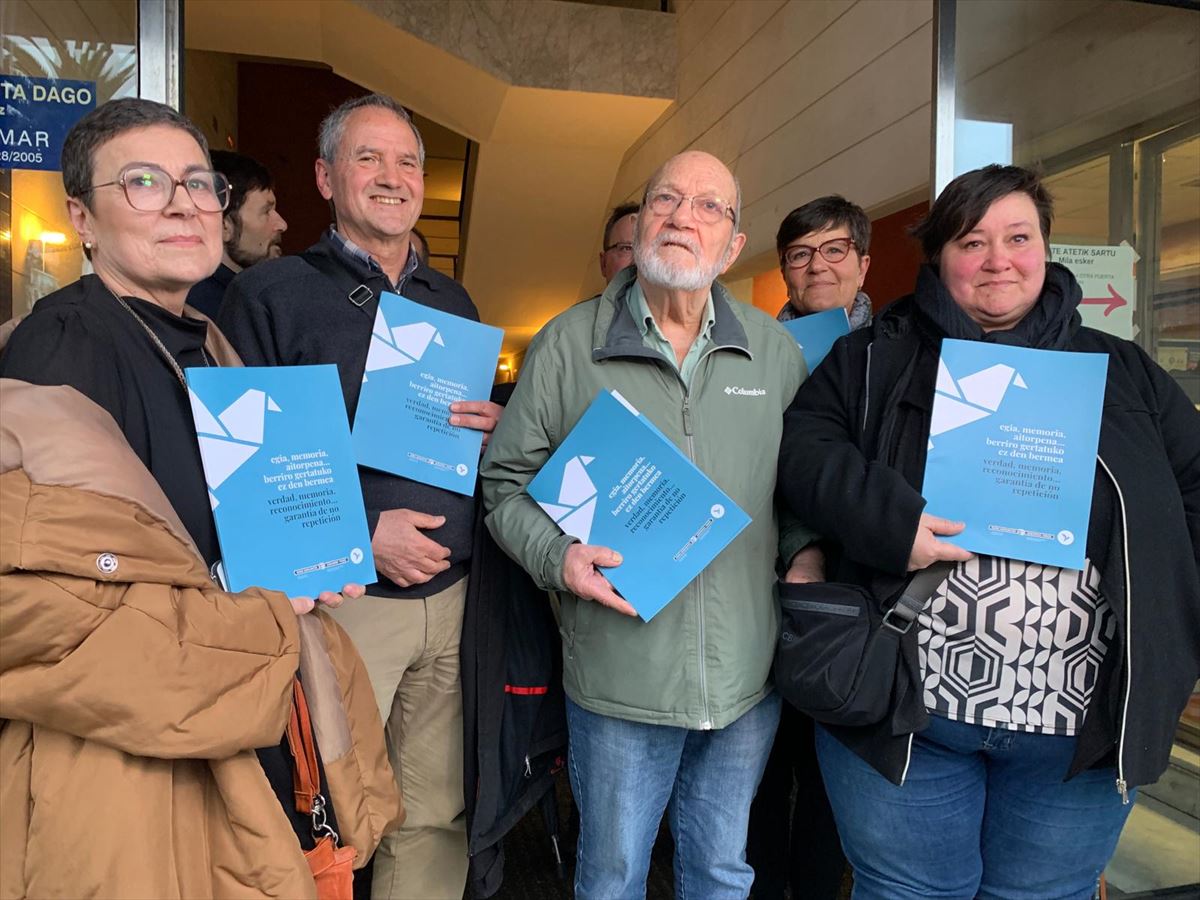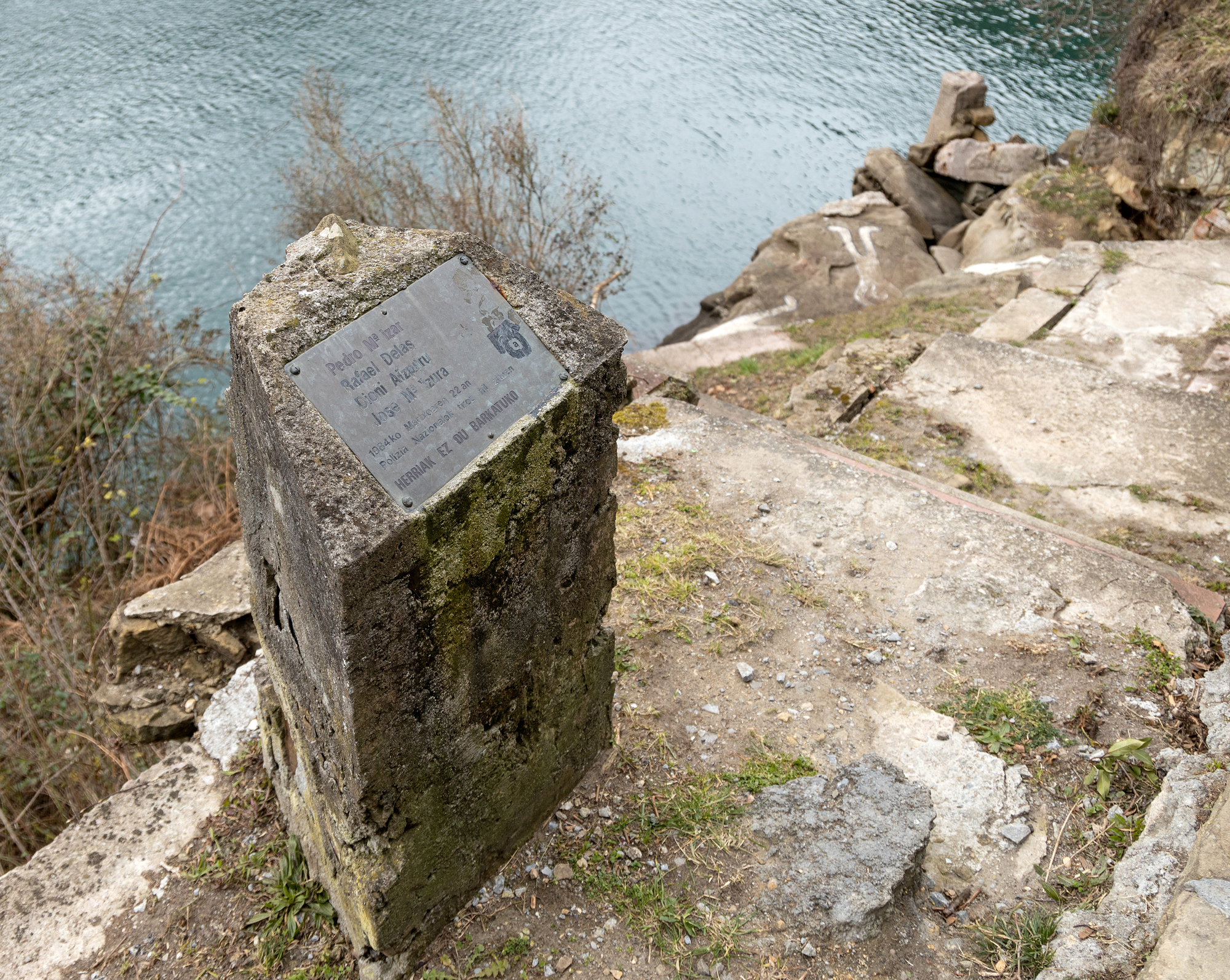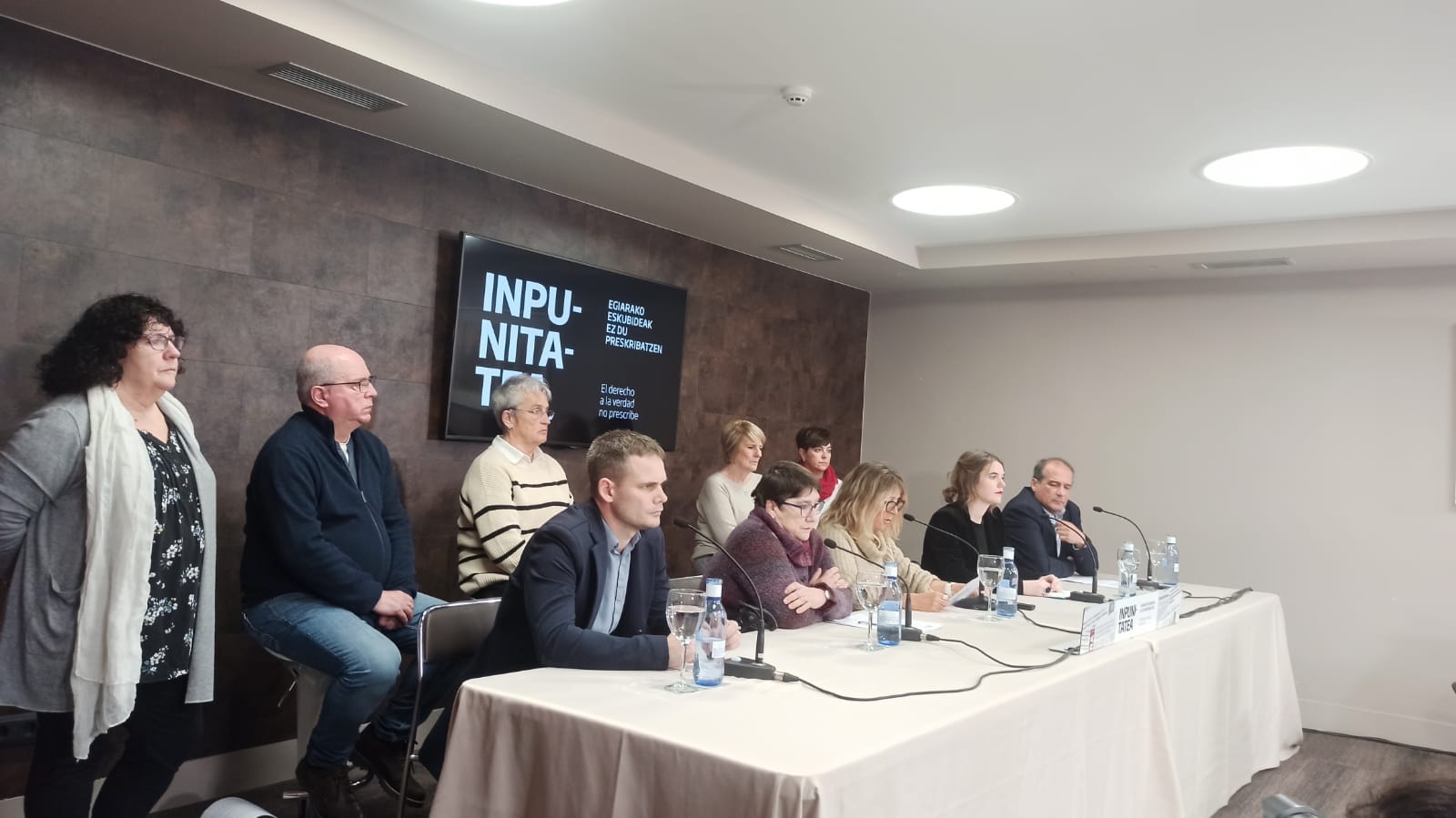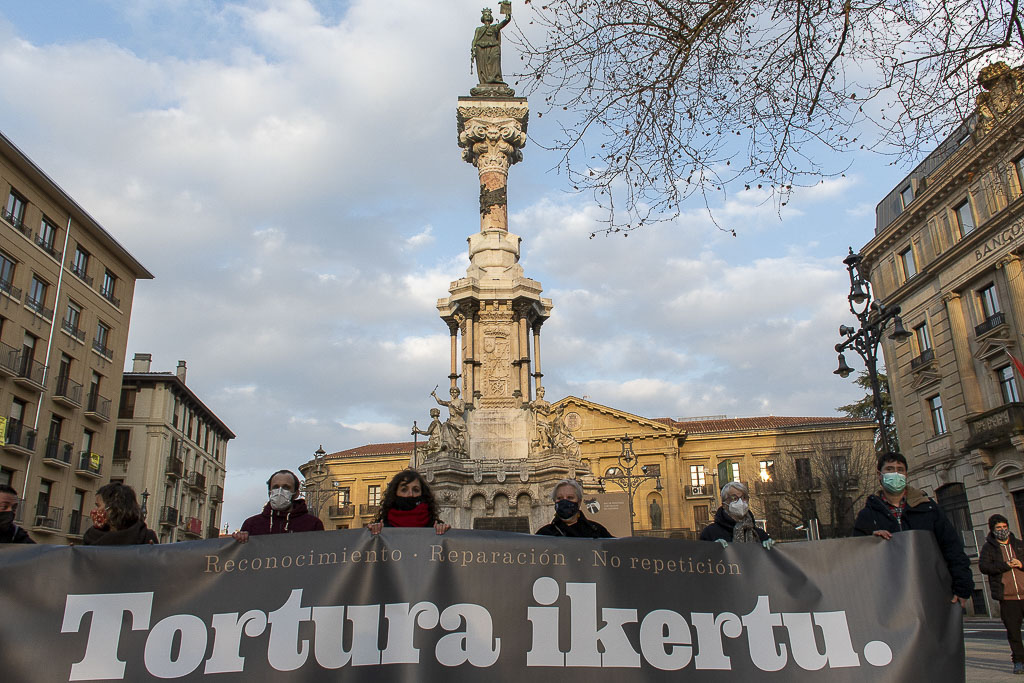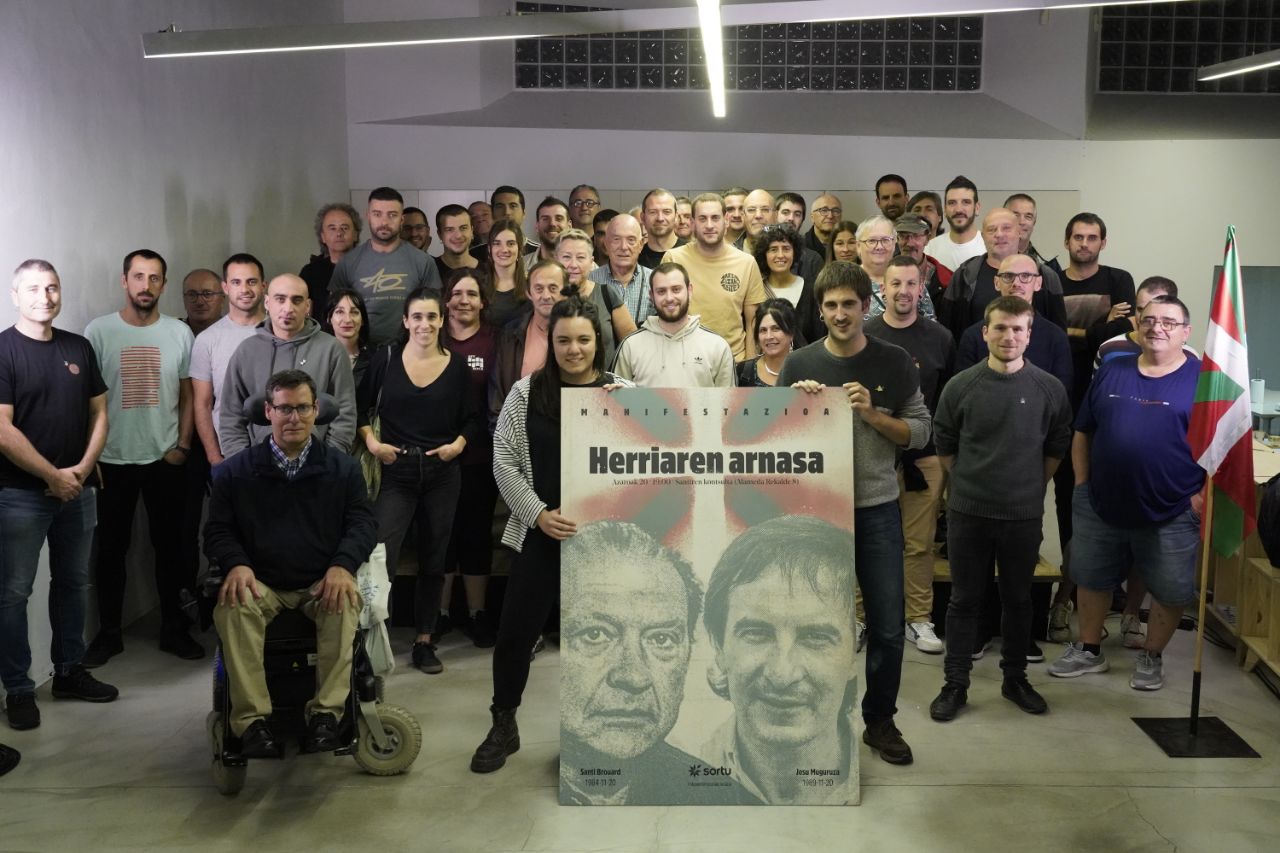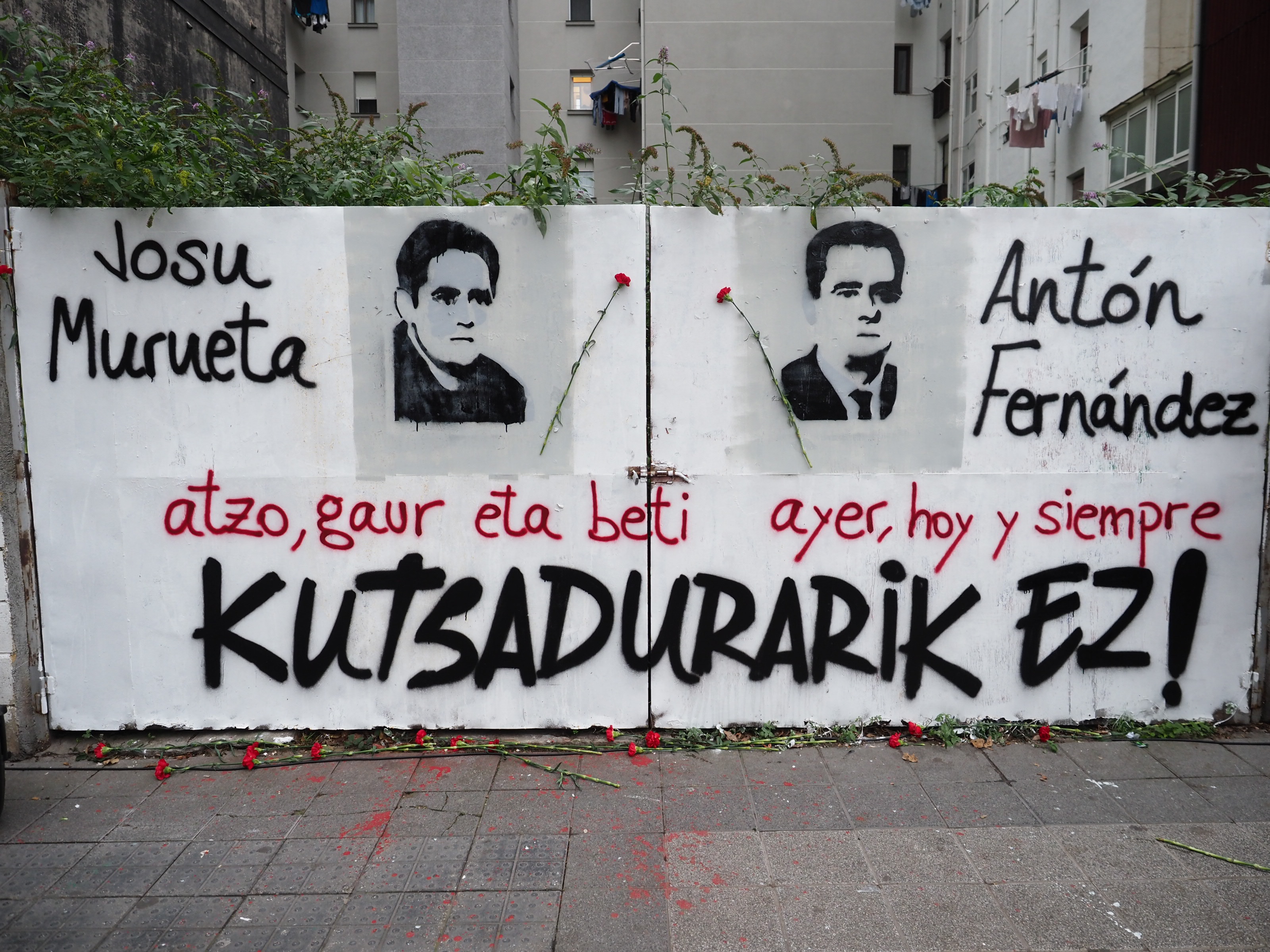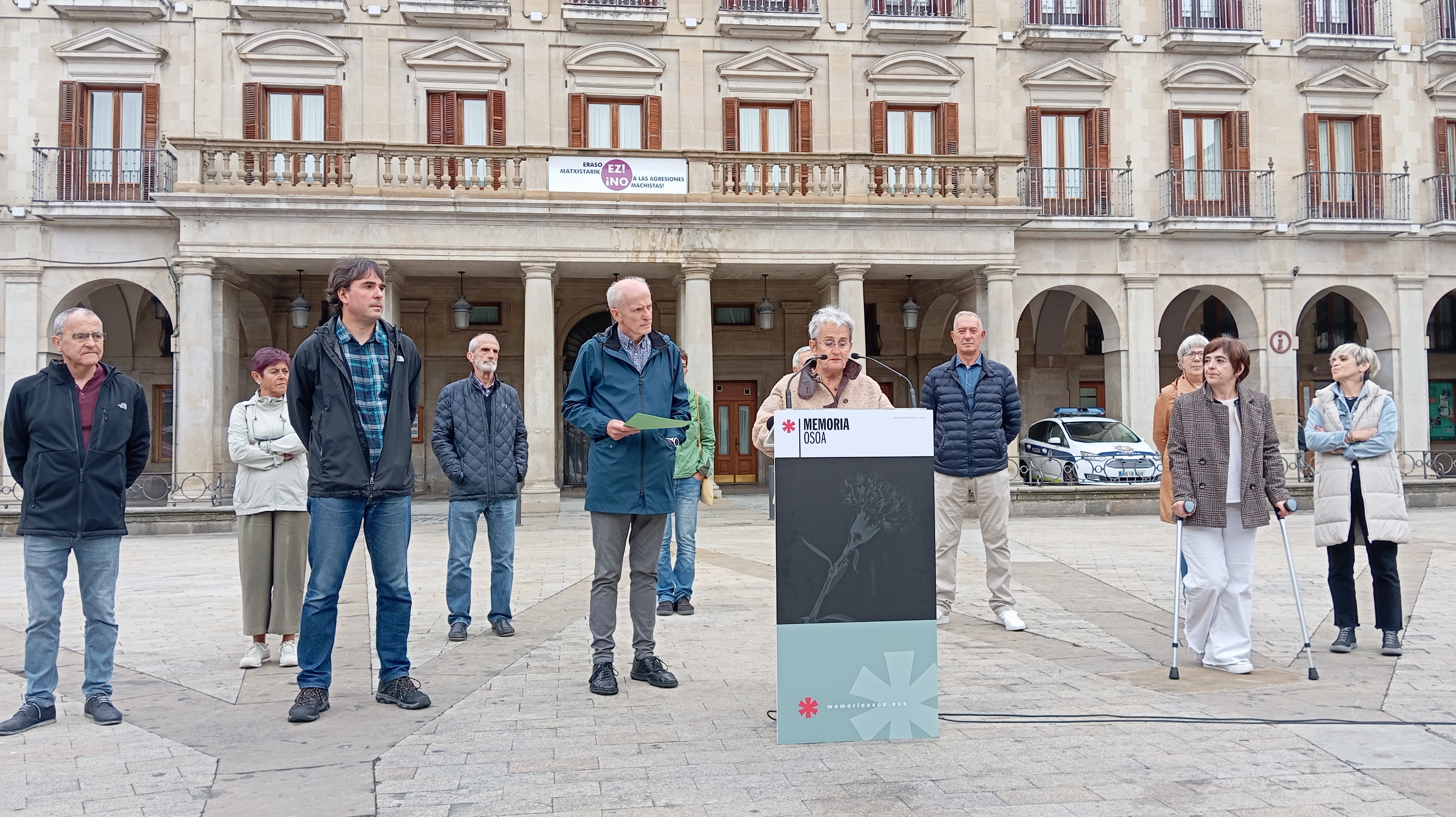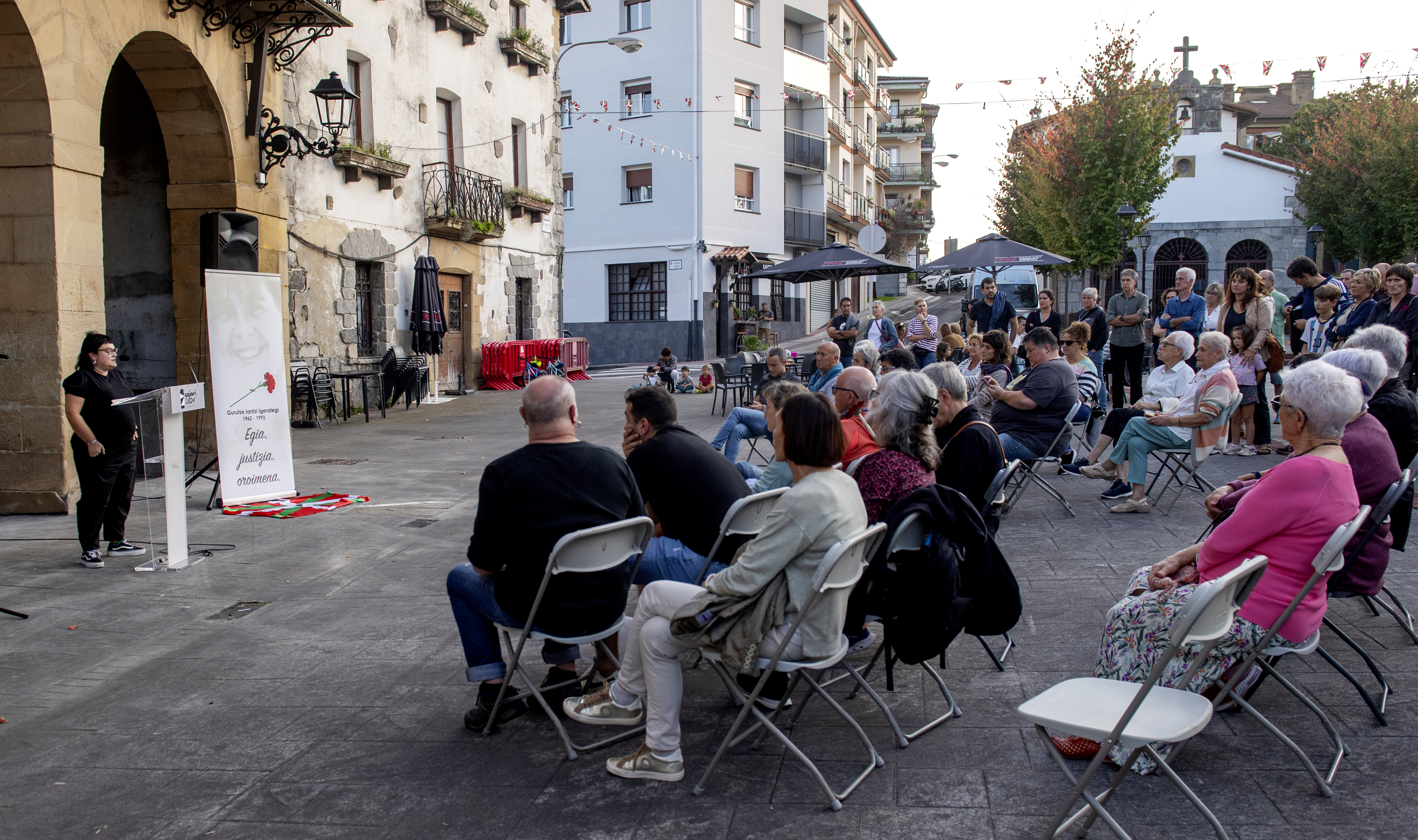On the 35th anniversary of the Ambush of Pasaia, they recalled the victims of the violence of the Spanish State
- The market square of Azpeitia hosted last Saturday a commemorative event of the 35th anniversary of the ambush of Pasaia in Gipuzkoa. At this year's event, the victims of the violence of the Spanish State have been reminded with the same motto, ELEVEN cases.

More than 200 people have gathered at the event. On 22 March 1984, four persons of the Autonomous Anti-Capitalist Commandos died in Pasaia Bay, the Azpeitiars Dionisio Aizpuru Kurro and Pedro Mari Isart Pelitxo, and the Pamplona Rafael delas Txapas and José María Izura Pelu. In addition, many others have been recalled at the commemoration of the anniversary of this year: The five workers killed by the National Police on 3 March 1976 in Vitoria-Gasteiz (Pedro María Martínez, Francisco Aznar, Romualdo Barroso, José Castillo and Welcome Pereda), Germán Rodríguez, killed in Pamplona on 8 July 1978. Relatives and relatives of the three deceased have attended the event, in which they have received a bouquet of flowers on the stage. It has also been possible to hear a poetry written by José Luis Otamendi, and Eñaut Elorrieta has sung two songs in Basque and Spanish.
In the context of the political conflict, the organizers of the event have emphasized that the "political violence" of the last decades "has had multiple and varied actors" and that the institutions have "ethical and political responsibility to transmit and make known the democratic memory". In addition, they added that memory should be "inclusive and comprehensive", as it "should serve to reflect on suffering, so that it does not recur". To do this, the recognition of what happened is "indispensable". They have recalled data from the research carried out by the Egiari Zor Foundation: "State violence has caused 219 deaths and the dirty war has caused 78 deaths, all in Spain. Political emergency measures have resulted in the deaths of 63 people and the deaths of four people from fascist attacks. Of the 364 citizens killed by the violence of the Spanish State, only 82 have received official recognition, that is, four out of five have not received any kind of recognition."
"The truth, the justice to be promoted"
The daughter of Josu Muguruza, Ane Muguruza, has spoken today. He pointed out that in Euskal Herria there have been all kinds of violence that have generated "much pain and much suffering", but that not all victims have received "the recognition they deserve", such as those who have suffered "the violence exercised by state apparatus". He pointed out that there is a long way to "compensate for discrimination" between victims and "recognize once and for all the suffering caused by the state" to "bring to light all the truth". He criticizes that "the categorization of victims is being emphasized". "As far as official recognition is concerned, the distance we are living is enormous and growing, it becomes more evident when violence is categorized as such," he added. In recognition of all the victims, he recalled the responsibility of all the Basque institutions, but also of the Basque society. He stressed that the hour of justice has come, and that it is "true" that justice must be promoted." Muguruza recalled that tomorrow, 24 March, International Day of the Right to Truth is celebrated. He has pointed out that they will continue to work to "bring to light all the truth", as "all these years have shown us that there is no justice without truth". We will therefore never give up the truth.
Pello Aizpuru, the brother of the late Dionisio Aizpuru, spoke on behalf of the murdered in the ambush of Pasaia, and thanked him for the help he received during all these years. He also highlighted the contribution of the Sarraskia Argitu group in Pasaia, and invited Yuri Agirre, Xabier Otamendi and Xanet Esnaola to the stage. "We arrived late, late. We are late because it has been many years since state violence led our relatives in a brutal and cruel manner, and unfortunately, because we still have no official recognition," said Aizpurua, recalling the case of the Pasaia ambush. And he has asked that in the history of Euskal Herria "injustices" be properly collected. He has also stated that they will always remember their deceased relatives in Pasaia and that they will be "always prepared" to express their love for them and them.
This news was posted by Uztarria and we brought it to ARGIA under the CC by-sa license.
Azken astean ezagutarazi moduan, Eusko Jaurlaritzaren Balorazio Batzordeak txosten banatan aitortu ditu estatuaren biktima gisa. Justizia sailburuak ekitaldi pribatu banatan entregatu dizkie dokumentuak.
Espainiako Poliziak duela 41 urte hil zituen tiroka Dionisio Aizpuru, Pedro Mari Isart, Jose Mari Izura eta Rafael Delas gazteak, Komando Autonomo Antikapitalistetako kideak.
GALeko biktima talde batek eman du kereilaren nondik norakoen berri Bilbon egindako prentsaurrekoan, Egiari Zor fundazioak eta Giza Eskubideen Euskal Herriko Behatokiak lagunduta. GALen aurkako eta, zehazki, José Barrionuevoren aurkako kereila aurkeztuko dute.
Nafarroako Gobernuak ofizialki aitortu ditu gure lurraldean giza eskubideen urraketa larriak jasan zituzten Estatuaren indarkeriaren beste zazpi biktima. Horien artean, hitzez hitz “motibazio politikoko biktima gisa” aitortzen ditu Patxi Erdozain, Eneko Compains,... [+]
2008an Fernando Grande Marlaska epailearen aginduz atxilotu zutenean Ibai Azkonak pairatu zituen torturak aitortu ditu Nafarroako Gobernuak. Euskalerria Irratian, pauso honek suposatzen duena azaldu du Azkonak.




